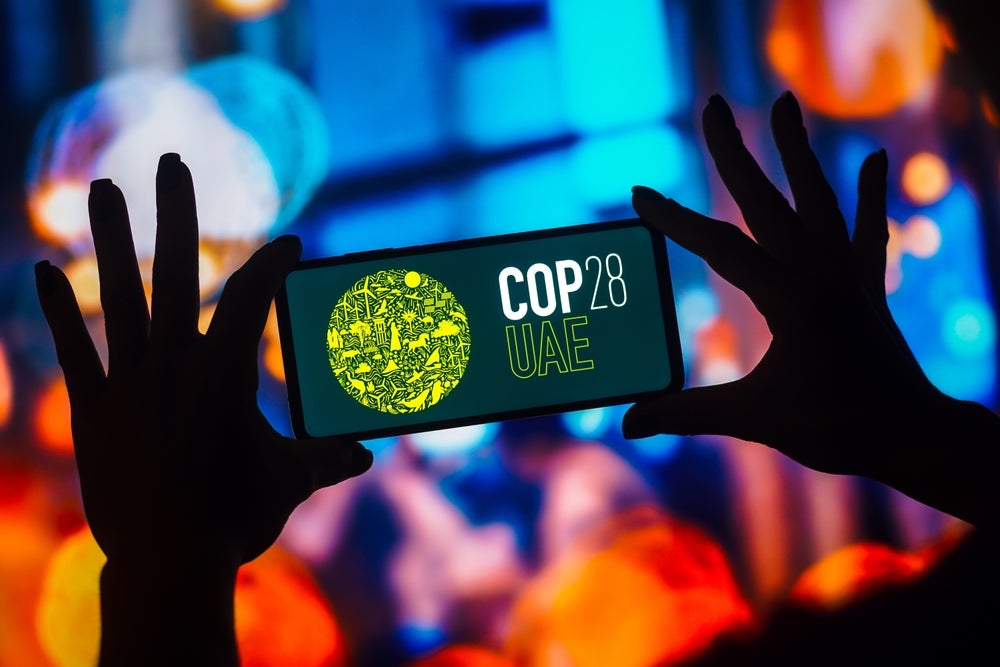
Change for the better was largely absent from COP28, to the extent that few would be surprised if societal climate apathy ultimately prevented meaningful and effective climate action for the good of all, instead of globally significant, morally dubious companies with massively CO₂ emitting value chains.
With net zero targets being pushed back and new and extensive deals for the worst emitting industries that actively undermine green agendas, the road to limit global warming to 1.5°C seems plagued by those keen to profit from institutional failures during the low-carbon transition.
COP28 and oil states on the same plate?
It will likely be unsurprising to many that COP28, whose expressed intent is for governments to limit and prepare for future climate change, will instead lay the highly-emitting concrete and cement foundations for more oil and gas extraction and a far greater global emissions portfolio.
Absent engagement from the world’s largest emitters, bureaucratic delays to action, and unclear motivations were all part of the COP28 display in Dubai. Joining ineffective policymaking, opaque carbon accounting, and absent emissions targets enforcement, with enhancing actively ecologically detrimental industries invalidates much of what COP28 upholds.
Sultan Al Jaber, president of COP28 and chief executive of ADNOC, the national oil and gas company of the United Arab Emirates, even used bilateral meetings for business development with the oil and gas sector via the diplomatic network provided to him by the COP28 presidency. ADNOC has already announced plans to spend $150bn over the next seven years to maintain current production levels of oil and gas. Representing the commercial intentions of a nation or an industry so flagrantly undermines the confidence in the presidency to perform its duties.
Abate, wait, negate, and deflate
Despite the success of global agreements and action exhibited in the Montreal Protocol in 1987, and its subsequent Kigali Amendment in 2016, global average temperatures are still projected to rise beyond 2°C by 2100. Even though the Paris Agreement in 2015 required all countries to set emission-reduction pledges, and with many countries—including the largest emitters—further committing to more substantial emission-reduction pledges, voluntary international accords do not seem to be having the needed effect.
How well do you really know your competitors?
Access the most comprehensive Company Profiles on the market, powered by GlobalData. Save hours of research. Gain competitive edge.

Thank you!
Your download email will arrive shortly
Not ready to buy yet? Download a free sample
We are confident about the unique quality of our Company Profiles. However, we want you to make the most beneficial decision for your business, so we offer a free sample that you can download by submitting the below form
By GlobalDataIn 2021 the Intergovernmental Panel on Climate Change predicted that the world will exceed 1.5°C or warming within the next two decades even with drastic and immediate emissions cuts. Anything less than clear and explicit commitments (and the associated actions) to extensive emissions reductions and fossil fuel abatement will fall short.
Mates’ rates, upcoming dates, and preventable fates
Moving away from broader and less localized emission reduction efforts will be vital to achieve meaningful reductions globally. In the US alone, more than 600 local governments have published emission reduction plans. Trying to re-emphasize the immediacy and significance of climate change and its effects will help emissions-cutting efforts, and these can be helped through benefits provided by schemes targeting aspects of daily life like clean air and domestic insulation.
These schemes, nevertheless, often do not serve the countries and populations most vulnerable to climate change. It is thus important for the public to set the standards of climate action for all and to challenge nations and companies who free-rode on efforts and continue highly-emitting business as usual. ‘Fossil fuels’ never even appeared in a COP resolution until COP26 in Glasgow. Targeting false solutions and actors in current policies and growing the scrutiny around unambitious efforts must be unanimous, global in effect, and crucially led by the public.
Industry is also a crucial element to any reduction scenario and change must be holistic, from materials selection to end-of-life and disposal (hopefully recycled).
Setting and embedding sustainability standards and practices in daily operations, alongside increasing transparency within a company’s value chain is uncompromisable. These will help build public and private traction to climate actions overall, in turn, a potential commercial benefit going forward. Making climate action commercially beneficial could be the most effective form in which notable emissions reductions are achieved.
This cannot happen without abandoning partisanship, accepting the all-encompassing nature of the threat of climate change, and truthfully and enthusiastically engaging with the public. Ultimately, truly global climate action must be led by the public.





Related Company Profiles
ADNOC Distribution